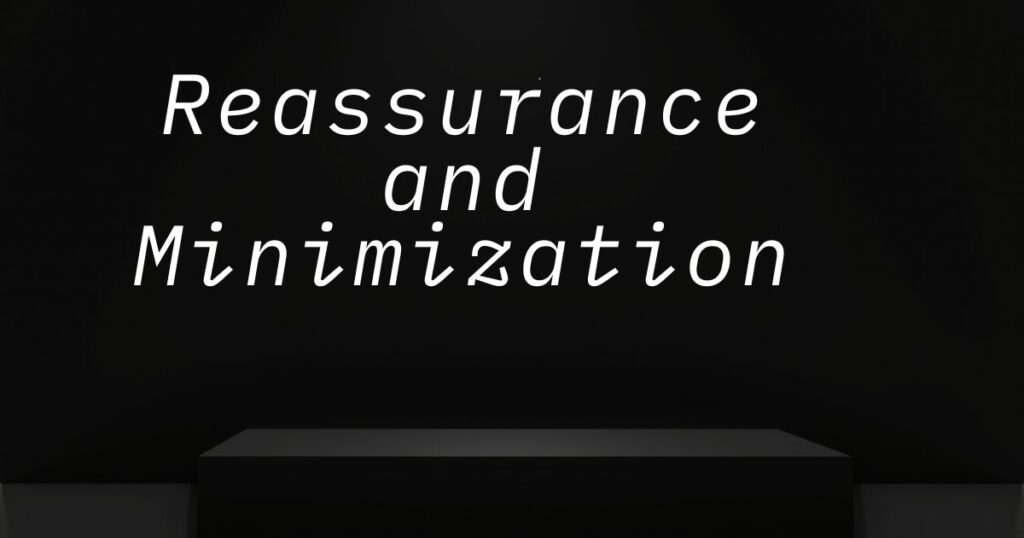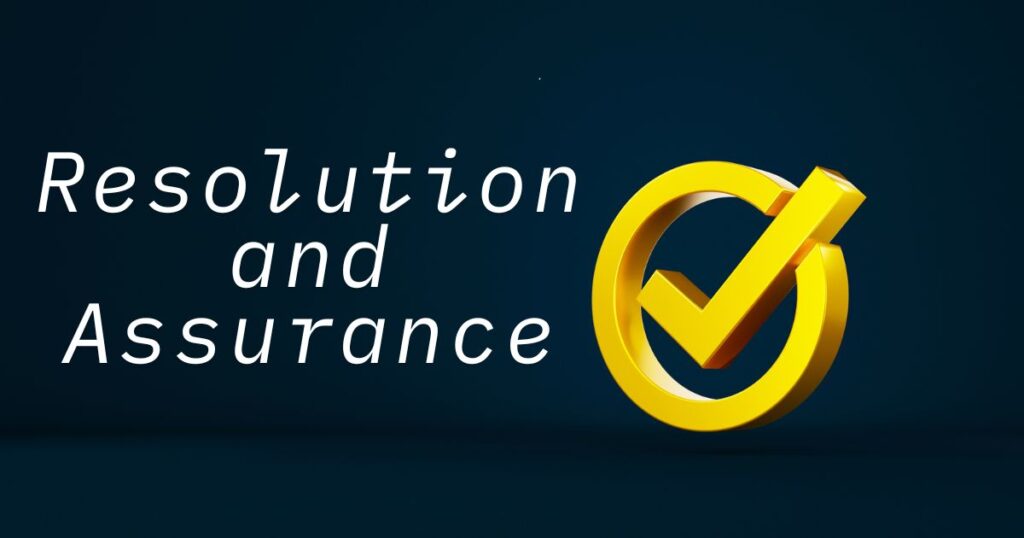“Never Mind” is a phrase we all use in everyday conversations. It’s a simple way to brush off something that doesn’t need attention. But what if you want to say “Never Mind” in different ways? There are many alternatives that can help you express the same idea, depending on the situation. Sometimes, you might want to downplay an issue to comfort someone. Other times, you might just want to move past a small mistake or misunderstanding.
In this article, we’ll explore 17 other ways to say “Never Mind.” Whether you’re talking to a friend or a coworker, you’ll find plenty of options to express a relaxed and reassuring tone.
Other Ways to Say “Never Mind”
If you’re looking for other ways to say “Never Mind,” phrases like “Forget about it,” “It’s alright,” or “No worries” help downplay the issue. These alternatives reassure others, create a relaxed atmosphere, and convey that the matter isn’t important, encouraging everyone to move on and let go.
Reassurance and Minimization

Reassurance and Minimization are essential in easing tension by downplaying concerns. Phrases like “It’s no big deal” or “No harm done” help reassure others, suggesting the issue isn’t important and allowing people to move on without stress.
1. Forget About It
Example: “You couldn’t make it to the meeting? Forget about it, we’ll catch you up.”
Meaning: This phrase helps someone let go of a mistake or issue by saying it’s not significant enough to stress over. It’s a way of telling the other person that what happened is not important, and they shouldn’t feel guilty or anxious.
Usage: “Forget about it” is often used in casual, friendly, or lighthearted situations where you want to show someone they’ve been forgiven. Whether it was a small blunder, a delay, or a misunderstanding, this phrase suggests the matter has been settled, and there’s no need to worry. It makes the situation feel less urgent, more relaxed, and brings a sense of peace. It’s also a way of showing emotional closure, helping the conversation move on smoothly.
2. It’s Alright
Example: “You spilled some coffee? It’s alright, no big deal.”
Meaning: “It’s alright” is a warm and gentle phrase that tells someone that what happened is acceptable, and they’re not in trouble. It reassures them that the mistake was minor, and there’s no lasting impact or consequence to worry about.
Usage: This expression works well in informal and even slightly formal contexts. If someone makes a small error, like missing a detail, arriving late, or forgetting something, saying “It’s alright” helps calm them down. It brings emotional comfort, reduces stress, and makes people feel more at ease. The tone is usually gentle, signaling that everything is still under control, and they can move on without pressure.
3. Don’t Worry About It
Example: “I forgot to bring your charger—don’t worry about it, I’ll grab it later.”
Meaning: This phrase encourages the other person to relax and stop feeling anxious or responsible for a small mistake. It helps take the emotional weight off the issue and allows everyone to stay calm and peaceful.
Usage: “Don’t worry about it” is perfect when you want to downplay something and bring back a sense of normalcy. It’s a way to say that the issue is trivial, not urgent, and won’t cause any harm. Whether someone feels bad about a forgotten task or a delayed message, this phrase offers reassurance and helps them move on without guilt. It signals that the matter has already been managed or will be handled, offering a stress-free solution and a supportive attitude.
4. It’s No Big Deal
Example: “Sorry I lost the file!” “It’s no big deal—we’ve got a backup.”
Meaning: This phrase tells someone that the issue is not serious and doesn’t need too much attention. It’s a great way to help someone feel less bad about a slip, blunder, or careless mistake.
Usage: “It’s no big deal” is often used in easygoing, laid-back conversations. It shows you’re not upset and are choosing to minimize the importance of what went wrong. That helps the other person feel reassured and unbothered. It’s also useful when someone is overthinking or apologizing too much for something trivial. Saying this helps redirect the conversation, signaling that everything is under control, and it’s time to move forward without any drama or extra fuss.
5. That’s Okay
Example: “I sent the wrong email earlier.” “That’s okay, we’ll send an update.”
Meaning: “That’s okay” is one of the most comforting ways to let someone know they haven’t caused a big issue. It means the action is acceptable, even if it wasn’t perfect. It expresses forgiveness and understanding.
Usage: This phrase is very common and useful in both personal and professional settings. It helps someone feel safe, forgiven, and less anxious about what just happened. The tone is often gentle, showing that the situation is already resolved or will be taken care of soon. It tells people there’s no tension, no chaos, and nothing to be afraid of. Whether it’s a small mistake, minor issue, or just an awkward moment, “That’s okay” helps everyone settle down and reset with kindness.
6. No Harm Done
Example: “Oops, I sent the wrong attachment.” “No harm done, just resend the right one.”
Meaning: This phrase means that even though something went wrong, it didn’t cause any damage, impact, or consequences. It helps ease someone’s mind by letting them know the mistake was harmless.
Usage: “No harm done” is great for keeping the mood light and friendly when a small error happens. It works well in casual conversations and even some professional settings. When you say this, you’re helping the other person feel forgiven, and you’re showing that you’re not upset. It tells people they can move on, that everything is still stable, and nothing serious was affected. It’s also a way to promote a calm, peaceful environment, where people feel free to make mistakes without fear.
7. It’s Not Worth Worrying About
Example: “I forgot to remind you about the meeting.” “It’s not worth worrying about—we can reschedule.”
Meaning: This phrase tells the other person that the situation is too small or insignificant to cause stress. It’s a way of saying the issue isn’t important enough to focus on or feel bad about.
Usage: When someone is stuck in regret over a small mistake or a minor issue, this phrase helps them let go. It brings emotional comfort, encourages a stress-free attitude, and allows people to keep moving forward. It also works well to prevent overthinking or unnecessary guilt. Using this phrase shows you’re understanding, forgiving, and focused on what matters most. It lets the other person feel more settled and confident that things are still on track, even if something went wrong.
Moving On and Dismissal
Moving On and Dismissal involve redirecting attention away from the issue to maintain peace. Phrases like “Let’s move on” or “Water under the bridge” help dismiss the situation, signaling that it’s no longer relevant or worth dwelling on. These expressions encourage letting go and focusing on what comes next.
8. Let’s Move On
Example: “I can’t believe I made that mistake during the presentation!” “Let’s move on. We’ve got the next steps to focus on.”
Meaning: This phrase encourages progress and shifts attention away from a past issue, signaling it’s time to let go and move forward. It’s often used to steer the conversation in a more productive direction.
Usage: “Let’s move on” is great for situations where someone is dwelling on a minor issue or mistake. It’s often used in professional settings to help refocus a team or to quickly minimize unnecessary stress. It helps remind everyone that mistakes are part of the process and that it’s time to get back on track. The phrase encourages a lighthearted and calm atmosphere, where there’s no need to linger on what’s already settled or finished.
9. Skip It
Example: “I didn’t catch the last part of the conversation.” “Skip it. It’s not that important anyway.”
Meaning: This phrase suggests that the conversation or issue is irrelevant or unimportant and can be easily skipped over without affecting the overall outcome.
Usage: “Skip it” is useful when you want to brush off something that doesn’t need attention. It can be used in informal settings when people are trying to avoid unnecessary drama or discussion. Saying “skip it” shows that you’re not stressed about missing information and that you’re focused on the bigger picture. It also helps to maintain a relaxed tone and assures everyone that there’s no need to stress over something that doesn’t affect the present situation.
10. It Doesn’t Matter
Example: “I forgot to ask for your opinion.” “It doesn’t matter—we can make adjustments as we go.”
Meaning: This phrase tells someone that the situation is trivial and doesn’t carry any significant weight. It’s a way of minimizing an issue or mistake by pointing out that it’s not important in the grand scheme of things.
Usage: “It doesn’t matter” can be a comforting way to assure someone that everything is still under control and that small things don’t need to derail the progress. It’s often used when people are feeling overly concerned about a small issue. Saying this helps settle any tension and reminds everyone that it’s not worth investing emotional energy into minor problems. Whether in a workplace, casual hangout, or while resolving personal conflicts, this phrase brings peace and encourages a more relaxed mindset.
11. Water Under the Bridge
Example: “I was so angry about what happened last month.” “It’s water under the bridge now. Let’s focus on what’s next.”
Meaning: This phrase indicates that an issue is in the past, resolved, and no longer has any relevance or emotional impact. It suggests that the situation is forgiven and forgotten, allowing both parties to move on without resentment.
Usage: “Water under the bridge” is perfect for emotional healing or situations where there’s been a misunderstanding or falling out. It’s often used in relationships, whether personal or professional, to signify closure and the end of a conflict. The phrase promotes peace, comfort, and a fresh start. When used correctly, it helps ease any lingering tension and assures people that everything is settled. It’s a way of saying, “Let’s let go of the past and focus on the future.”
12. Leave It Be
Example: “I’m still upset about that comment.” “Leave it be—it’s not worth the energy.”
Meaning: This phrase encourages someone to stop dwelling on an issue and let go of it, as continuing to focus on it will only create unnecessary stress.
Usage: “Leave it be” is often used when someone is fixating on something that’s no longer relevant or can’t be changed. It’s a gentle way to remind others that they don’t need to keep revisiting the problem. The phrase also signals that it’s not important, and there’s no need to keep stressing about something that’s either a minor issue or already resolved. It helps people relax and refocus their energy on things that truly matter.
Read More: 12 Other Ways to Say “Good Idea”
Resolution and Assurance

Resolution and Assurance focus on providing closure and confidence that everything is under control. Phrases like “All taken care of” or “Rest assured” reassure others that the situation is resolved and that no further action is needed. These expressions offer comfort and certainty, ensuring peace of mind.
13. All Taken Care Of
Example: “I’m worried about the project deadline.” “Don’t worry, it’s all taken care of. Everything is on track.”
Meaning: This phrase reassures someone that an issue has already been resolved, or that someone has already handled the situation. It implies confidence and completion.
Usage: “All taken care of” is perfect when you want to reassure someone and let them know there’s no reason to worry. It conveys that all necessary tasks have been completed or that any concerns have been addressed. This phrase is great in both professional and casual settings, especially when others may feel anxious about something. It’s also a comforting phrase when someone is stressed or uncertain, as it brings a sense of peace and calm to the situation.
14. Rest Assured
Example: “I’m not sure if they’ll approve the proposal in time.” “Rest assured, we’ve got everything covered. It will be approved.”
Meaning: This phrase provides reassurance, ensuring someone that everything is under control and that they don’t need to worry. It’s used to instill confidence and provide peace of mind.
Usage: “Rest assured” is ideal for professional settings where you want to offer reliability and confidence. It’s commonly used when someone has doubts or feels uncertain. Using this phrase offers an easy fix, creating an atmosphere where people feel comforted and can relax. Whether at work, in social situations, or while dealing with personal matters, “rest assured” brings a sense of security and lets everyone know that there is no need to stress about potential problems.
15. It’s in the Bag
Example: “I’m still not sure if I passed the interview.” “Don’t worry, it’s in the bag. You nailed it!”
Meaning: This phrase suggests that success is guaranteed or that the outcome is already secure. It’s often used when someone is uncertain about a situation, but there’s high confidence that everything will go as planned.
Usage: “It’s in the bag” works perfectly when you want to assure someone that there’s nothing to worry about. This expression is common in informal settings when the result seems certain, whether it’s a task, goal, or commitment. It helps minimize any stress someone might feel about a future event or decision. When used with confidence, it encourages a relaxed, easygoing attitude and provides an added layer of comfort.
16. It’s Under Control
Example: “I’m concerned about the presentation. What if we forget something?” “Don’t worry. It’s under control. We’ve rehearsed everything.”
Meaning: This phrase indicates that a situation or problem has been managed, is in good hands, and does not require further attention or concern. It suggests that everything is organized and will be handled smoothly.
Usage: “It’s under control” is commonly used in both work and personal life when people are feeling anxious or overwhelmed. It offers reassurance and comfort by telling others that things are being handled competently. This expression helps to reduce stress, particularly in high-pressure environments, by emphasizing that there is no need to worry. It conveys calmness and stability, and assures that any potential issues are being taken care of.
17. Count on It
Example: “I’m worried if we’ll meet the deadline.” “Count on it, we’ll finish it on time.”
Meaning: This phrase provides assurance, telling someone they can depend on the outcome or that things will happen as expected. It’s a strong guarantee that offers someone peace of mind.
Usage: “Count on it” is a great way to show trust and reliability in both professional and informal settings. When you want to reassure someone that they don’t need to stress, this phrase gives them confidence that the task will be completed successfully. It’s used to show that something is guaranteed and doesn’t require any further concern. It helps people relax, knowing they can rely on the person offering the assurance. Whether in work, personal relationships, or team projects, “count on it” conveys trustworthiness and calm assurance.
When to Use Different “Never Mind” Alternatives
When to Use Different “Never Mind” Alternatives: Different alternatives to “Never Mind” fit various contexts. In casual settings, use phrases like “It’s alright” or “Forget about it” to ease tension. In professional situations, phrases like “No harm done” or “It’s not worth worrying about” offer reassurance and maintain a calm tone.
In Casual or Informal Interactions
- In informal conversations, phrases like “Never Mind” can be used to dismiss a concern in a light-hearted, easygoing manner. It’s a way of signaling that the issue isn’t important and that no further discussion is needed.
- This expression helps to relax the mood and ease any tension in casual interactions, letting people know there’s no need to stress over trivial matters.
In Professional or Formal Settings
- While “Never Mind” may not always be appropriate in formal environments, alternatives like “It’s not worth worrying about” or “Rest assured” can convey similar reassurance without sounding too informal.
- In a professional context, using these phrases helps to calm concerns, minimize stress, and signal that things are under control, all while maintaining an appropriate tone.
To Reassure and Comfort
- When someone is feeling anxious or stressed, using phrases like “Never Mind” or its alternatives can offer much-needed comfort and peace of mind, reminding them that the situation is minor and insignificant.
- Phrases like “It’s no big deal” and “No harm done” can be reassuring in tough moments, helping others let go of their worries and move forward with confidence.
To Encourage Moving Past an Issue
- In situations where there’s a misunderstanding or blunder, phrases like “Never Mind” can act as a gentle nudge to move on and stop dwelling on something unimportant.
- “Let’s move on” or “Skip it” are effective at redirecting attention and encouraging a forward-thinking mindset, promoting a stress-free and lighthearted atmosphere.
In Decision-Making or Action-Oriented Contexts
- When making decisions, saying “Never Mind” or “It’s no big deal” can help ease pressure and overcome indecision, especially when something is minor or low-priority.
- Using this phrase helps settle any unease or doubts, providing reassurance that a decision can be reversed or adjusted without much consequence.
Conclusion
“Never Mind” is a versatile phrase, but it’s always good to know other ways to express it. Whether you’re reassuring someone or brushing off a small issue, alternatives to “Never Mind” can make your conversation sound more natural. You can choose different phrases based on the situation.
Now, you have 17 other ways to say “Never Mind” when you want to keep things light and easygoing. These options help you sound more relaxed and understanding. So, next time you need to say “Never Mind,” try using one of these alternatives. It’s a simple way to communicate more clearly and comfortably.

Grammerroot is your trusted source for mastering English grammar and language skills. From simple rules to advanced tips, we help learners build strong foundations through easy-to-understand content. Learn smart, learn right — only at Grammer Root.




